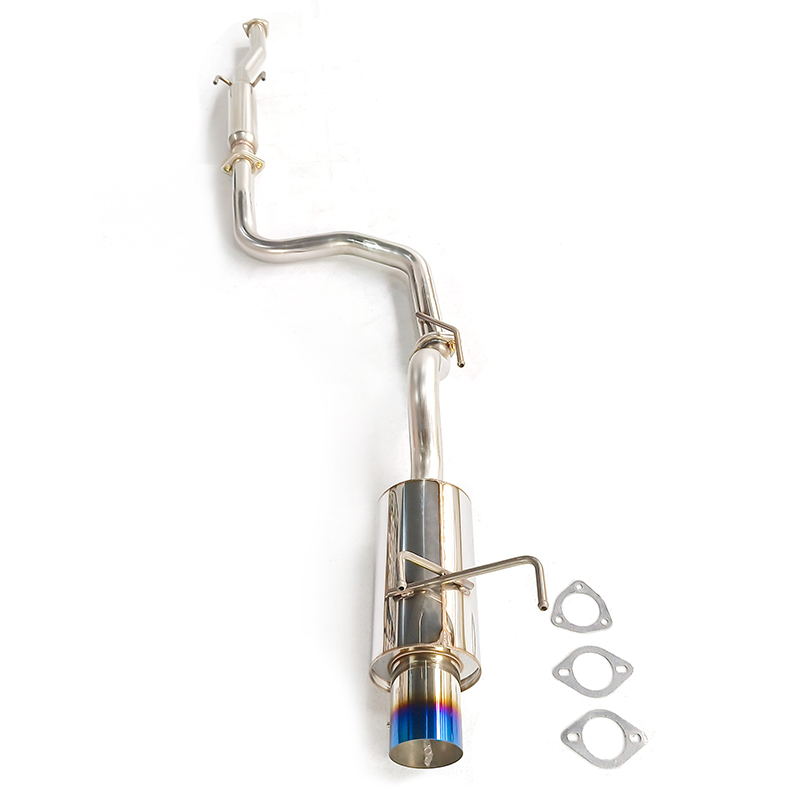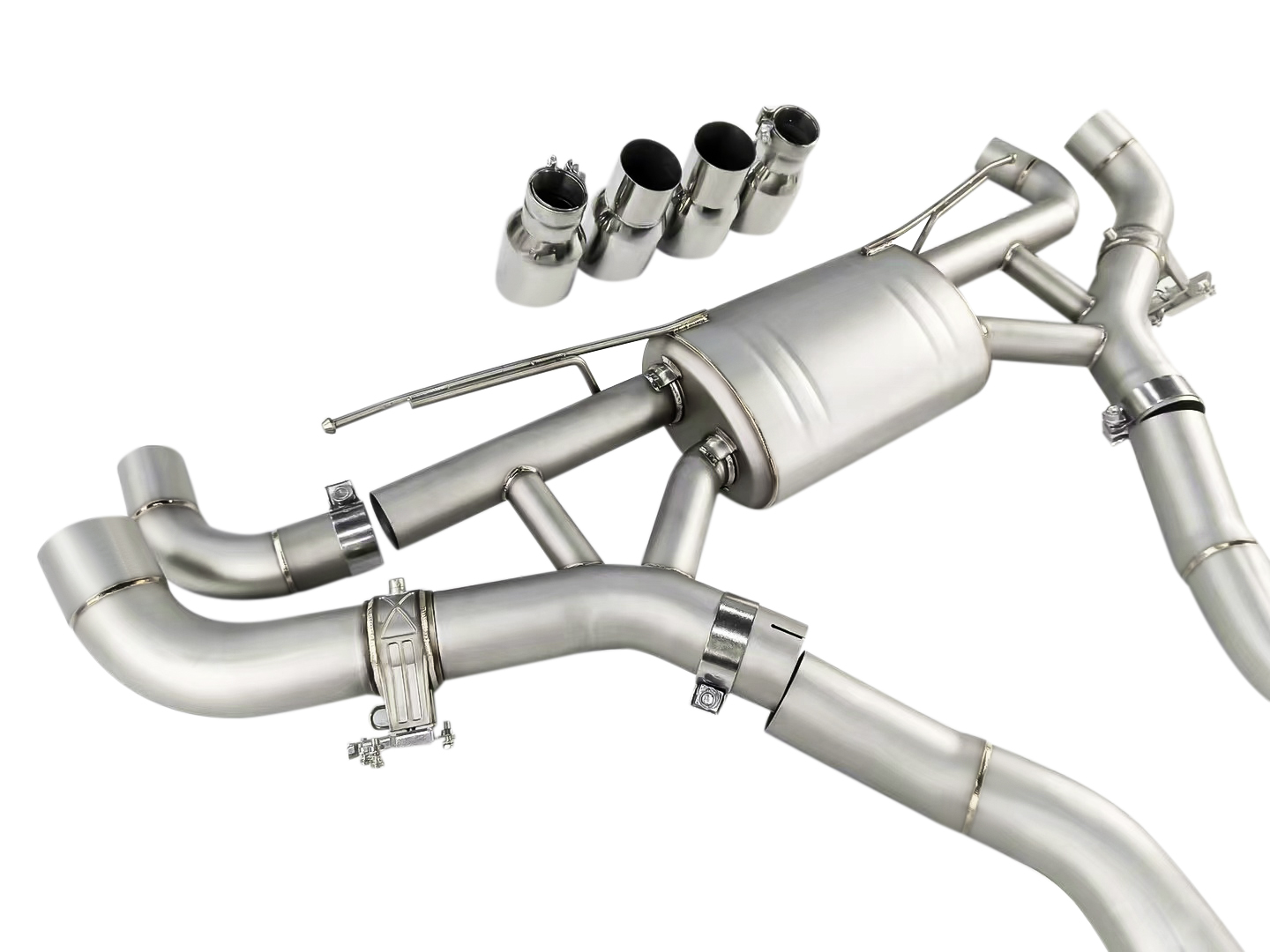How to choose materials when changing the exhaust?
I believe that friends who have modified the exhaust pipe know that it is usually made of stainless steel. Even some high-level exhaust pipes use titanium alloy. Have the riders considered why these materials are used for the exhaust pipe? What material is the most suitable for the manufacture of exhaust pipes?
First of all, you need to understand the working condition of the exhaust pipe. The function of the exhaust pipe is to exhaust the exhaust gas from the engine, purify the exhaust gas and play a certain role in noise reduction.
The temperature of the exhaust gas is generally 300-400 degrees Celsius, and some are even close to 1000 degrees Celsius. The closer to the engine, the higher the temperature. Gas is continuously output from the engine. Generally speaking, the back pressure of engines with different displacements and different powers is different. The engine with a displacement of 1.0 liters is about 25kpa, and if it reaches 1.6 liters, it is about 40kpa.
However, at low temperature or after parking, the temperature of the exhaust pipe will drop, and a large amount of water will accumulate in the muffler; the pH value of the condensate is 8 to 9, which is weakly alkaline, and this condensate has a corrosive effect on the exhaust pipe.
Therefore, the material of the exhaust pipe needs to have good stability at high temperature, high temperature oxidation resistance, corrosion resistance, cold and heat fatigue and good processing performance.
Usually the exhaust pipes of our family cars are made of ordinary steel and stainless steel. Among them, ordinary steel is the most common. Generally, the exhaust pipes we are selling are stainless steel or Titanium alloy.
ORDINARY STEEL / ORDINARY IRON
Ordinary iron has good processing performance and low cost, so it was widely used in automobiles in the early days because of its poor corrosion resistance. After about half a year, up to 1 year, the inside will slowly delaminate, forming exhaust blockage, which seriously affects the power and causes unsmooth exhaust, which increases fuel consumption, and the muffler skin is prone to leaks.
Later, some manufacturers applied a high-temperature corrosion-resistant coating on the surface of the exhaust pipe to prolong the service life of the exhaust pipe.
However, it will lead to corrosion without coating protection at the subsequent solder joints. At present, ordinary iron exhaust pipes will gradually be replaced by stainless steel exhaust pipes.
STAINLESS STEEL
Because of the high chromium content, stainless steel has better corrosion resistance and oxidation resistance. Stainless steel has a small coefficient of thermal expansion, high thermal conductivity, good high temperature oxidation resistance under repeated heating and cooling conditions, and good resistance to pitting corrosion, and later became the material of choice for automobile exhaust pipes.
TITANIUM ALLOY MATERIAL
Titanium alloy is an alloy composed of titanium and other elements. It has a stable structure. Its main advantages are good oxidation resistance, low temperature toughness, corrosion resistance, and its wear resistance is also superior. At the same time, the density is lower than that of stainless steel (under the same volume, the weight of titanium alloy is smaller than that of stainless steel), but its strength is more than 40% higher than that of stainless steel. Therefore, titanium alloys can be used for exhaust pipes under some extreme working conditions.
How to choose materials when changing the exhaust?
At present, the modified exhaust pipes available on the market are all stainless steel.
Generally speaking, the corrosion and stability of stainless steel have met the normal working conditions of the exhaust pipe, and the service life is very long. The use of stainless steel with higher specifications will only increase the cost and process complexity, and the meaning is not very great.
So why is there such a thing as a titanium alloy exhaust pipe? This is for those professional racing or extreme enthusiasts to fully explore the power of the car. For example, in order to reduce the weight of the car, the power of the car is greatly improved by changing the engine, flashing the ECU and changing the intake air, resulting in the exhaust back pressure and gas temperature being much higher than the original car rated range. In this situation , titanium would be the best choice for users.

